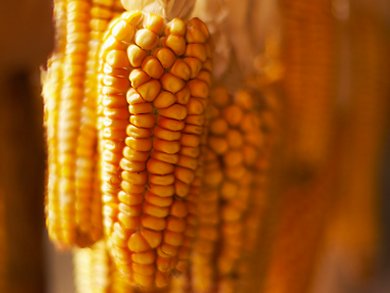Most maize plants grown in our fields are hybrids. Compared to the non-hybrid lines they deliver up to 50 % more crop. Although of great importance for agriculture, the reasons behind this phenomenon called heterosis remain elusive. The only thing certain is that the parents of hybrids have to come from inbred lines and must not be related.
As not all inbred lines are suitable for hybrid crossing, finding the perfect parents involves expensive, laborious trials. It takes breeders about ten years to develop a new variety, but climate change, global food crisis, and the increasing need for biofuels demand faster solutions.
Mark Stitt and Lothar Willmitzer, Max Planck Institute for Molecular Plant Physiology, Potsdam, Germany, and colleagues developed a mathematical model that predicts surprisingly well if a plant will make a good parent or not. The model is based on genomic information obtained from the maize kernels and the metabolic profile of the seedlings. A tiny amount of sample material, which can be taken from one single grain of maize without destroying its ability to germinate, is enough for the complex analyses.
As the new system does not rely on field trials, it is cost-efficient. The results will be especially valuable for breeders.
- Max-Planck-Gesellschaft, Munich, Germany


